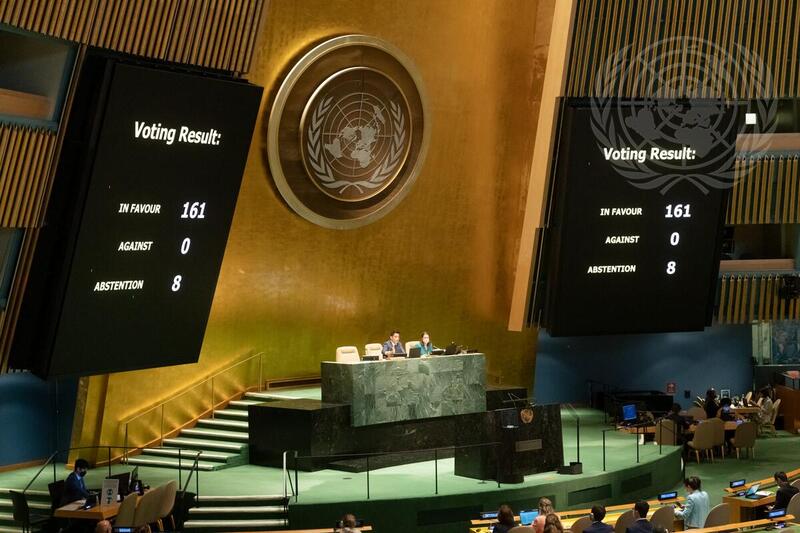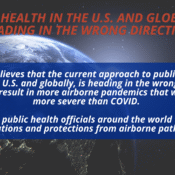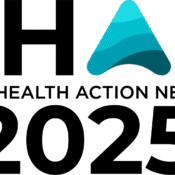
Why Clean Air is a Human Right: The Case for Global Standards and Protection
Clean airAir free of pollutants, including viruses, bacteria, and harmful particles. is essential for health, yet millions worldwide breathe air contaminated with harmful pollutants. Despite its critical role in sustaining life, clean airAir free of pollutants, including viruses, bacteria, and harmful particles. is often overlooked as a human right, even though poor air quality can have dire health consequences. Just as clean water is recognized as a human right, so too should clean airAir free of pollutants, including viruses, bacteria, and harmful particles.. The right to clean airAir free of pollutants, including viruses, bacteria, and harmful particles. is as fundamental as any other and warrants global attention and protection.
This article explores why clean airAir free of pollutants, including viruses, bacteria, and harmful particles. is a human right, comparing it to other essential human rights like access to clean water and a safe environment, and discusses why we must urgently prioritize it.
Clean Air and the Right to Health
The World Health Organization (WHO) estimates that air pollution contributes to over 7 million premature deaths each year, with more than 90% of the global population breathing polluted air. The harmful particles found in polluted air can cause respiratory diseases, cardiovascular problems, and even cancer. For children, the elderly, and those with pre-existing health conditions, the stakes are even higher. Clean airAir free of pollutants, including viruses, bacteria, and harmful particles., therefore, is not just a matter of comfort but of life and death.
Internationally, the right to health is a well-established human right recognized in various treaties and declarations, including the United Nations’ Universal Declaration of Human Rights (UDHR). The UDHR affirms that “everyone has the right to a standard of living adequate for the health and well-being of himself and of his family.” Clean airAir free of pollutants, including viruses, bacteria, and harmful particles., like clean water, is a core element of this right to health. To ignore the importance of air quality in this context is to ignore the foundation of human health itself. This resolution was finally passed in 2022. 1This resolution sends a message that nobody can take nature, clean airAir free of pollutants, including viruses, bacteria, and harmful particles. and water, or a stable climate away from us – at least, not without a fight https://www.unep.org/news-and-stories/story/historic-move-un-declares-healthy-environment-human-right
Clean Air vs. Clean Water: A Parallel Human Right
Access to clean water is widely accepted as a fundamental human right. Contaminated water sources contribute to the spread of diseases like cholera, dysentery, and typhoid, posing significant health risks. Recognizing this, the United Nations General Assembly passed a resolution in 2010, explicitly declaring the human right to water and sanitation. Since then, governments have worked to improve water access worldwide, recognizing that clean water is vital to health, dignity, and quality of life.
Clean airAir free of pollutants, including viruses, bacteria, and harmful particles. is equally essential but has yet to receive the same recognition. While waterborne illnesses from unclean water sources are a direct health hazard, polluted air is often seen as an invisible threat, despite being just as dangerous. Air pollution causes severe health effects, yet the right to clean airAir free of pollutants, including viruses, bacteria, and harmful particles. has not received the same urgency. This disparity underscores the need to establish clean airAir free of pollutants, including viruses, bacteria, and harmful particles. as a human right and hold governments accountable for maintaining air quality standards.
Clean Air, Environmental Justice, and Human Rights
Air pollution disproportionately affects low-income communities, making clean airAir free of pollutants, including viruses, bacteria, and harmful particles. not only an environmental issue but a social justice issue as well. People living in industrial areas or near highways, who are often economically disadvantaged, experience significantly higher exposure to pollutants. Studies have shown that marginalized groups are more likely to face health risks from air pollution, contributing to health disparities that can extend across generations.
Environmental justice advocates argue that everyone, regardless of socioeconomic status or geographic location, has a right to clean airAir free of pollutants, including viruses, bacteria, and harmful particles.. Recognizing clean airAir free of pollutants, including viruses, bacteria, and harmful particles. as a human right would support this movement by ensuring that all people,regardless of their background,are entitled to a healthy environment. It would create legal grounds for marginalized communities to demand air quality standards and protections, addressing the inequality inherent in today’s air pollution patterns.
The Economic Impact of Ignoring Clean Air
Poor air quality also has profound economic implications, burdening healthcare systems and reducing productivity. The World Bank estimates that air pollution costs the global economy over $5 trillion annually in welfare losses and healthcare expenses. In highly polluted cities, respiratory illnesses, missed workdays, and increased hospital admissions place a financial strain on individuals, businesses, and governments alike.
Comparatively, investing in clean airAir free of pollutants, including viruses, bacteria, and harmful particles. can yield substantial returns. For every dollar invested in air pollution control, public health benefits often far exceed the cost, reducing healthcare expenses and increasing workforce productivity. Recognizing clean airAir free of pollutants, including viruses, bacteria, and harmful particles. as a human right would encourage governments and corporations to prioritize air quality, making preventive measuresActions taken to reduce the risk of disease transmission. a moral and economic imperative.
Legal Frameworks for Clean Air as a Human Right
Some countries have already taken steps to incorporate clean airAir free of pollutants, including viruses, bacteria, and harmful particles. into their legal frameworks, setting a precedent for others to follow:
- France: The French government has been held legally accountable for failing to meet air quality standards. Courts ruled in 2021 that the government was liable for the impact of air pollution on its citizens’ health, ordering it to take immediate action.
- South Korea: In response to severe air pollution, South Korea has designated fine dust particles as a “social disaster,” implementing emergency air quality measures to protect public health.
- The European Union: The EU has established strict air quality standards, and the European Court of Justice has ruled in favor of citizens who have sued governments over poor air quality. These rulings underscore that clean airAir free of pollutants, including viruses, bacteria, and harmful particles. can and should be protected as a fundamental right.
Expanding these efforts on a global scale could help set enforceable standards for clean airAir free of pollutants, including viruses, bacteria, and harmful particles., allowing citizens worldwide to hold their governments accountable.
Clean Air as a Climate and Sustainability Imperative
Recognizing clean airAir free of pollutants, including viruses, bacteria, and harmful particles. as a human right is also crucial for addressing the climate crisis. Many sources of air pollution, such as fossil fuel emissions from cars, factories, and power plants, are also significant contributors to climate change. Policies aimed at reducing air pollution,like transitioning to renewable energy and promoting green transportation,benefit both air quality and the fight against global warming.
The UN Sustainable Development Goals (SDGs) emphasize the importance of good health, clean water, and clean energy, all of which directly impact air quality. Acknowledging clean airAir free of pollutants, including viruses, bacteria, and harmful particles. as a human right aligns with these goals, reinforcing global efforts to create a healthier, more sustainable planet.
Taking Action: What Can Be Done?
Declaring clean airAir free of pollutants, including viruses, bacteria, and harmful particles. as a human right would be a major step forward in protecting public health, supporting environmental justice, and addressing climate change. But how can this be accomplished?
- International Advocacy: Governments, NGOs, and civil society groups can work together to advocate for a UN resolution recognizing the right to clean airAir free of pollutants, including viruses, bacteria, and harmful particles.. Such a declaration would set global standards and increase pressure on countries to address air pollution.
- Policy Reform and Enforcement: Countries can adopt stricter air quality standards, backed by enforceable regulations and penalties for non-compliance. Funding for air quality monitoring systems is also essential to ensure accurate reporting and enforcement.
- Investment in Clean Energy and Technology: Transitioning from fossil fuels to renewable energy sources reduces pollutants and supports clean airAir free of pollutants, including viruses, bacteria, and harmful particles. initiatives. Investments in public transportation, electric vehicles, and green urban planning can also reduce air pollution in densely populated areas.
- Community Empowerment: Recognizing clean airAir free of pollutants, including viruses, bacteria, and harmful particles. as a human right would empower communities, especially those disproportionately affected by pollution, to advocate for safer environmental conditions. Community-driven monitoring programs and environmental justice initiatives can help address local air quality issues and hold polluters accountable.
Conclusion: Clean Air is Fundamental to Human Dignity and Well-Being
Clean airAir free of pollutants, including viruses, bacteria, and harmful particles., like clean water and adequate shelter, is a fundamental human right. It underpins our health, economic productivity, and quality of life. Protecting clean airAir free of pollutants, including viruses, bacteria, and harmful particles. for all people,regardless of where they live or their socioeconomic status,is an ethical imperative that requires immediate attention and action.
As the global community continues to confront the challenges of air pollution, climate change, and environmental justice, recognizing clean airAir free of pollutants, including viruses, bacteria, and harmful particles. as a human right will provide a strong foundation for more equitable and sustainable policies. With cleaner air, we can build healthier societies and a healthier planet, reaffirming our commitment to a future where every person has the opportunity to breathe freely and live with dignity.













